#op-ed
Text
Extremely late, completely unnecessary opinion of the Watcher situation, (2024-04-24)
So this is a relatively belated post — several days after the initial “Goodbye Youtube” and one day after the “An Update” videos — and surely by this point there are more interesting/insightful op-eds (both in written form and video form, especially penguinz0’s fairly objective POV as, essentially, a YouTube expert) but there is something about the Watcher situation that made my brain itch. Thus, I wanted to write about it in order to make sense of it all as well as get into a philosophy that seems to be haunting me in recent years and which I think applies greatly here.
This may seem completely out of left field considering 1) definitely not fanfiction and 2) about Watcher Entertainment, a YouTube channel which—as far as this tumblr is concerned—I’ve not engaged with whatsoever, but I don’t know where else I would put this, and weirdly enough I think the general tumblr response to this whole predicament is maybe the… if not objective… then at least, most thoughtful?—or, perhaps, least immediately reactive?—amongst the various social media platforms, that I think some people might appreciate this anyway.
In terms of my relevant background: I majored in Management Science (which is just a fancy way of saying Economics + Business + Accounting because they are, weirdly enough, separate things) and minored in Film Studies in school, I am currently working in the stage tech industry (which, I know, is obviously different from film/video industry), and I like to think I am a fan/consumer of a wide variety of independent creators, some of whom I am lucky enough to be able to afford being a patron/subscriber. I won’t go into all of them—because it is a lot—but there are four in particular whose business models I want to analyze in comparison to Watcher’s admitted blunder:
A) RocketJump (known for Video Game High School and Anime Crimes Division; the core group which turned into the podcast Story Break, then became Dungeons and Daddies)
B) Dropout (formerly College Humor, we’ll get into their discography later)
C) Drawfee (previously an offshoot of College Humor, now fully independent)
D) Corridor Digital (used to be mostly behind the scenes of how VFX studios work, have since become a mostly original content creator)
I will say, right off the bat, I am a patron of Drawfee as well as Dungeons and Daddies, and I am a subscriber to Dropout. I am not subscribed to Corridor Digital’s streamer, which I will get into why later. I understand that being able to sustain those two patronages and one subscription is a luxury that not everyone can afford and so my point of view is already skewed by being such a person who could theoretically afford another streaming service if I so chose. I also acknowledge that many fans of Watcher are not in similarly financially secure places as I am and that regardless of the business model, any monetization that comes from fans would have been a rough ask. However, I wanted to go into this essay in a way that accepts Watcher’s statement—that they needed more funding—in relatively good faith rather than assuming the worst (although that is another point I’ll get into later, largely related to the philosophy I brought up earlier.)
All four of the above listed content creators started or, at least, hit their stride on YouTube:
RocketJump and College Humor were, if not household names, then the digital equivalent of it in the “early days of YouTube.” They were part of the wave of content creators that made YouTube seem less like a bunch of eccentrics with cameras making videos on the side and more like a viable way to support yourself/your team with the art you create.
RocketJump’s Video Game High School went from short (less than 10 minutes) minimal location episodes in season one, to 30 minute plus episodes with full on fight scenes and car explosions by season three thanks to a Monster Energy brand deal. They also had two seasons of Anime Crimes Division, a literal TV quality show, thanks to a Crunchy Roll sponsorship. Unfortunately, RocketJump shut down not long after (their videos are still up on YouTube but they obviously don’t add anything new) but the core creative team behind that have been involved in several projects outside of YouTube (Dimension 404 on Hulu being one of the biggest ones so far) including the podcast Story Break (part of the Maximum Fun network) and now the independent podcast Dungeons and Daddies, the episodes of the main campaigns which are free with ads or, for patrons, ad-less along with additional mini-campaigns and other benefits.
I will say, during RocketJump’s decline, they did try their best to keep going. The partnerships with Monster Energy and Crunchy Roll were the big swings to get the funding to make those TV quality shows they wanted. I believe they lucked out with those brands in particular, or, at least, those brands didn’t seem to inhibit the creative process or ask too much of them that it felt like “selling out” but I also don’t have insight into why they didn’t pursue this model of, essentially, very weird but interesting season long commercials. Maybe they just couldn't find the right brands or maybe they did feel like it was too stifling. Regardless, before they shut down completely, they did also downsize—moving out of the actual city of Los Angeles over to Buena Park. Which is in Los Angeles county, and basically counts as LA still, but is way cheaper than literal Hollywood real estate. (I should have added to my relevant background that I’m born and raised LA county, and have relatives and friends in the film/movie industry, so trust me when I say literal Hollywood/city of Los Angeles is so overrated and unnecessarily expensive. There is a reason why LA traffic is the worst and it’s because everyone is commuting INTO the city. Respectfully and with affection, no one should live there. No one’s start up should be located there.) Obviously the downsizing didn’t necessarily work for RocketJump, but they also didn’t have multiple successful revenue streams the way that Watcher currently does.
In contrast, College Humor was acquired by InterActiveCorp and was turned into CH Media which was three pronged: College Humor, Drawfee, and Dorkly. In 2018 they made Dropout, which had exclusive content separate from their YouTube videos which involved all three prongs. Then some financial shenanigans happened early 2020—IAC withdrew their funding—and there were a bunch of layoffs right before the pandemic which extremely sucked. It has been stated by multiple people involved that it was basically a miracle that Dropout survived through all of that, but there were definitely some sacrifices along the way to make that happen. Currently, Dropout seems to be thriving with mostly exclusive content with the occasional “first episode of a season” posted to YouTube, OR if Dimension 20 is doing a “sequel season” in an already established campaign they will put the entirety of the previous season on YouTube.
IAC withdrawing their funding did put CH Media in a bind. They had to layoff a lot of people right before pandemic and, understandably, a lot of trauma was had. There were also weird issues with who controlled certain IPs/brands/digital assets (I mostly come at this from a Drawfee POV, it took several years for them to own the Drawga series and be allowed to host all of the episodes on their YouTube, and there was also something about the sound file for their opening animation?) but mainly the difference is what kind of content they generate. Originally Dropout had multiple scripted shows with high budgets and pretty cool effects/animations/stunts (Troopers, Kingpin Katie, Gods of Food, Ultramechatron Team Go!, Cartoon Hell, and WTF 101) whereas now almost all of their shows are variations of improv comedians being put into different scenarios or given different prompts. I’m not just talking about Game Changer and Make Some Noise, because Dimension 20 and Um, Actually also technically fall under that description as well. Which is not to say that these shows are worse than the scripted shows—I subscribe to Dropout, so clearly I’m a fan of their current shows—and the budgets for them have since increased to resemble, if not match, those early shows, but it is a noticeable shift in their content creation strategy as a response to the lack of IAC funding. And I will say: Dropout releases at least three videos a week if not more and at least two of those are long form at 30 minutes plus (Dimension 20 being the longest, of course.)
So, these first two business models are not really the most applicable to Watcher Entertainment considering their origin was to get away from Buzzfeed—they’re probably not keen to be partnered with or purchased by a larger company—but there are some aspects to both that I believe are valuable in at least showing the strategy in how these former YouTube creators could successfully extract themselves from YouTube or how they still utilize YouTube even if it is not their main hosting platform or revenue stream.
Then there is Drawfee and Corridor Digital, both of whom are currently—if not primarily—on YouTube, whose situations are more comparable to what I believe are Watcher’s goals.
Drawfee had to rebuild themselves like a phoenix from the ashes of the CH Media layoff during the beginning/worst of the pandemic. Side note: I’m happy that Nathan (one of the four main artists of the current Drawfee team) at least has forgiven(? or let bygones be bygones) Dropout enough to be on an episode of Game Changer (although I will say that this happened after Drawga was “returned” to Drawfee, and after Dropout officially split from College Humor as a brand.) All that being said, Drawfee was a team of four artists plus their editor who wanted to stick together but basically had all of their support system taken away from them. They took a bit of a break to assess their goals and options, announced a patreon with several tiers with great perks, and stuck to their upload schedule. In addition to two videos a week, they also stream on Twitch weekly, have a patron only stream once a month, and a draw class (for one of the higher tiers) once month. After asking their patrons on the relevant tiers if they were okay with it, they began releasing the patron only stream and the draw class to the general public for free after a month. The patreon perks also include things like merch discount codes, high quality PNGs of the final rendered art, access to the draw class with live interaction/critique, and a commission from the artist of your choice. The only “ads” they run are for their own patreon and merch store and, even then, they’re usually at the end of the videos with a credit scroll of the patron names during their exit banter.
Admittedly, they only have MAYBE eight employees—that’s including their video editor(s?) and their discord mod(s?)—with the main four artists doubling/tripling up duties as additional video editors, CFO, and marketing/merch leads. It’s a very streamlined crew and their production costs are not very high since it’s mostly screen recording of their drawings with their audio recording overlayed onto that footage. Although the video editors do sometimes have clever cuts to relevant images depending on their vamping. Sometimes they will have a guest artist but, again, since it’s screen and audio recordings, there’s no travel/housing costs. So, very minimal expenses due to low production costs and small crew but, again, their only revenue source is the patreon/merch, they don’t do outside ads and they very rarely do live shows.
Corridor Digital is, I think, the most applicable to what Watcher would ideally do, which I suppose is somewhat ironic for this essay in particular considering they’re the only one of the four that I don’t financially support. They have two YouTube channels: their main one being where they show the “final product” videos, but I believe their Corridor Crew channel which started primarily as behind the scenes type of videos is where most of their views come from. Especially their React series (VFX artists, Stuntmen, and Animators React etc.) On Corridor Crew they usually upload two videos a week — one which is a React and the other which goes into fun projects/challenges (involving VFX or not) or using VFX to explain scientific concepts — as well as the first episodes of their exclusive content on their streamer. Also behind that paywall are longer and ad-less versions of the videos on YouTube. They also have merch. All of them have merch, I don’t know why I’m stating that. They don’t have a patreon as far as I know, but I also don’t know if their subscription to their website comes with similar perks like discounted merch or something similar.
Anyway, their studio seems to be about 15 to 20 people — not all of them are VFX artists, of course. I believe they have higher equipment costs than Watcher since, understandably, Corridor has to be on the cutting edge of video editing technology. They do occasionally travel for shoots, but it doesn’t require big teams, and that’s only when the local locations available to them don’t match the requirements for the “final product” videos. Otherwise most of their videos are set in the studio or in the alleyway outside their studio in Los Angeles (the city itself, not just the greater county, though they are in a rougher and thus probably cheaper part of Los Angeles). I personally don’t subscribe to their website primarily because their exclusive shows don’t appeal to me—either they’re too technical or a little too dry; to be fair, most of them are VFX artists first before they are performers—and I don’t particularly feel the need to see the extended cuts of the videos uploaded on YouTube. Also I sometimes get a little bummed out by their lack of diversity.
All of this to say, from these four different business models, a bespoke Frankenstein business model for Watcher could be cobbled together. But also, even with that bespoke Frankenstein, there are some changes that Watcher would have to make: primarily their upload schedule. As of right now, I think they do MAYBE one video a week if not, perhaps, one video every TWO weeks. If they want a monthly subscription model, their rate of content generation would ideally be higher to double/quadruple their current upload rate. Obviously they want to create videos with higher production value, but at that rate of generation, something’s got to give: supplement their TV quality shows with either a behind the scenes type series or an increase of “we get four episodes out of Shane and Ryan get increasingly drunk in someone’s backyard” or something similar. Leaning into shows like Worth A Shot (the first season in which Ricky Wang makes cocktails based on a random ingredient, the second season threw in some competitive aspects which I didn’t really find necessary) or the Beatdown which has relatively low production costs (no travel, one location, maybe two cameras at most therefore smaller crew requirements) but a higher polished look. Otherwise, for a separate streaming subscription service, 2-4 videos a month is not going to cut it.
As of right now they probably can’t back out of the separate streaming subscription service because those set ups usually require some level of contract/paying for servers for the website and whatever is hosting their videos for a set amount of time. However, what really strikes me is that I literally didn’t know they had a patreon until I scrolled through the comments of the first Goodbye Youtube video. Maybe it’s been linked "tactfully" in the descriptions of videos, but considering they claim to be lacking in funds, the fact that they weren’t plugging their patreon at the end of every video is not just strange, but also irresponsible considering they do have 25 employees that they don’t want to layoff.
Additionally, I understand artists needing to be in a space that promotes creativity, but there are cheaper places that must be comparable that aren’t in literal Hollywood. It’s an unnecessary expense. On top of that, other people have already brought up that it was fairly crass to introduce this paywall, attributing it to the increased production costs, when the next planned “new series” is a reboot of an old Buzzfeed series in which people travel and eat expensive food. I’m not even talking about the personal expenses of Steven, Shane, and Ryan; what kind of car they drive or the cost of their wedding venue doesn’t matter on a business model basis.
But getting back to the patreon: again, I literally didn’t know they had one. I’m looking over their tiers— they have $5, $10, $25, and $100 — and for the most part they seem okay, although I think they have more to offer that wouldn’t necessarily cost them more. Ie, something that has baffled me for a while: the fact they don’t sell the mp3s of the Puppet History songs; they already exist and it doesn’t cost them anything additional because they don’t need to put it on physical media. Or maybe they do and they’re not marketing it similarly to how they weren’t overtly marketing their patreon?
And, okay, maybe they didn’t want to seem desperate — in the early days of Dropout and independent Drawfee, they both were very blatant in getting people to subscribe/join their patreon. As they should be. Desperation maybe doesn’t look cool and sexy, but it is earnest in a way that conveys equal effort that fans who can afford it would want to see. The fact that we weren’t getting rotating ten second clips of Steven, Shane, and Ryan asking people to join the patreon at the end of every video — even if its the same clip every three videos — is wild. And yes, the $25 tier includes a shoutout every 3 months on Watcher Weekly+ (which I don't quite understand what that is,) but the fact that they weren’t doing a quick post movie credits scroll of all the patreon names is, again, wild. Once you have that initial list, it’s not too difficult to add any new names that join and put that title overlay on top of, again, those nonexistent ten second clips of the three.
As others have already stated, it seems like an extreme mismanagement of their existing successful revenue streams, if they are actually struggling to pay all of their employees. Which goes into the philosophy part of this essay: don’t assume malice when it might just be incompetence. It’s something that I have to remind myself of often because I do get paranoid about people’s intentions sometimes and I have to check myself. Am I being overly suspicious of what might be just an honest mistake? Am I assigning ill will to an action just because it inconvenienced me?
Yes, of course, a lot of this situation could be misconstrued as straight up greed. But, also, Watcher is a relatively young company, helmed by three people who certainly don’t have experience running their own company:
They like to travel. They like to bring a full crew around with them. They’re renting out a shiny office in the heart of Hollywood where everyone knows is where real show biz happens. They’re adding more employees to the team because surely more people means better. And they want better productions values because the prettier the videos the more people will like them right?
It’s naive. It’s a level of inexperience combined with giving responsibility to officers whose main priority is to entertain. And if that means entertaining themselves and their staff, then they might not know the difference. It’s the kind of mistake that first time managers make—trying to prioritize fun over getting the job done. Prioritizing making friends with their employees rather than making sure the work the employees put in is equal to (or greater than) what you spend on them whether that is in paycheck or bringing them to cool locations for fun shoots. It’s a mistake anyone can make, it's just unfortunate that they made this mistake in front of millions of people. It doesn’t necessarily mean it’s solely a greed induced cash grab.
But then comes the catch-22 of the philosophy—is it worse to assume incompetence than it is to assume malice? Or, in this case, greed. Especially for the heads of a company that holds the livelihoods of 25 employees in their hands. At what point does it not matter if it’s incompetence or greed if the end result is the same?
Is it better to think that Watcher knew about the various other business models of independent creators and just ignored the efforts put into achieving those successes or is it better to think that they didn’t know and just stumbled into one of the worst moves they could have done. Again, other people have mentioned that Great Mythical Morning—which Watcher has had multiple collaborations with—has managed to make the YouTube subscription/tier system work to the point that they can sustain themselves as well as spinoff channels. Is it incompetence or greed that led to Watcher thinking they could bypass that completely in less time and with less content?
I’ve been at this mess of an essay for several hours when I should have been asleep. Ultimately I want to say, regardless of incompetence or greed… yes, Steven is CEO and yes he is ultimately the one who makes the final call but it is disheartening to see the pointed vitriol at Steven specifically and the infantilizing of Shane and Ryan in comparison. Either they’re all silly uwu boys who are messing around not knowing how to run a company, or they’re all complicit in a crass cash grab in an extremely busted economy.
I think what’s most frustrating to me in all this is that there were so many other channels and creators who have literally walked this path before them and, again, whether through incompetence or greed or arrogance, for them to just ignore it… It’s not betrayal because I don’t know them and so there’s no relationship to betray, it’s just so inefficient and convoluted that I don’t understand. Or, no, even if it was greed, it’s an incompetent greed because at least pure greed would have been pushing that patreon every second they could. Their ratio of YouTube subscribers to patreon members is less than 1% and I bet that’s because a lot of their audience, like me, literally didn’t know they had a patreon. I probably would have become a patreon member of theirs had I known earlier, ESPECIALLY if it included access to those Puppet History songs. Drawfee has half as many YouTube subscribers and nearly double the patreon members as Watcher. I’m just baffled, is all, and maybe by this point sleep deprived.
Anyway. That’s my extremely late, completely unnecessary opinion of this situation.
Edit (several hours later after some sleep): I forgot to mention, because they did walk this back almost immediately, even before their "An Update" video, but I believe the original plan was to put EVERYTHING behind that paywall and pull their content from YouTube entirely. Which is, again, extremely baffling, because if ALL of their content is behind a paywall, how would they possibly gain new fans? Even if all of their current fans were able and willing to pay for their separate subscription streaming service, how would a brand new person even stumble on their content enough to want to subscribe if there wasn't a significant amount of "proof of value" free content on YouTube? Again, extremely baffling, and a level of incompetence that overshadows a "cunning" greed. But, like I said earlier, they did walk this decision back almost immediately. If I've misunderstood this and that was never their plan, please let me know, I don't want to be spreading misinformation in a situation that is already so convoluted.
#jacksgreyson#writing#nonfiction#essay#watcher#op-ed#youtube#drawfee#corridor digital#dropout#rocketjump#dungeons and daddies
37 notes
·
View notes
Text
Liz Cheney: I know how Mr. Trump’s delay tactics work. Our committee had to spend months litigating his privilege claims (in Trump v. Thompson) before we could gain access to White House records. Court records and public reporting suggest that the special counsel also invested considerable time defeating Mr. Trump’s claims of executive privilege, which were aimed at preventing key evidence from reaching the grand jury. All of this evidence should be presented in open court, so that the public can fully assess what Mr. Trump did on Jan. 6 and what a man capable of that type of depravity could do if again handed the awesome power of the presidency. Early this year, a federal appeals court took less than a month after oral argument to issue its lengthy opinion on immunity. History shows that the Supreme Court can act just as quickly, when necessary. And the court should fashion its decision in a way that does not lead to further time-consuming appeals on presidential immunity. It cannot be that a president of the United States can attempt to steal an election and seize power but our justice system is incapable of bringing him to trial before the next election four years later.
Mr. Trump believes he can threaten and intimidate judges and their families, assert baseless legal defenses and thereby avoid accountability altogether. Through this conduct, he seeks to break our institutions. If Mr. Trump’s tactics prevent his Jan. 6 trial from proceeding in the ordinary course, he will also have succeeded in concealing critical evidence from the American people — evidence demonstrating his disregard for the rule of law, his cruelty on Jan. 6 and the deep flaws in character that make him unfit to serve as president. The Supreme Court
8 notes
·
View notes
Photo
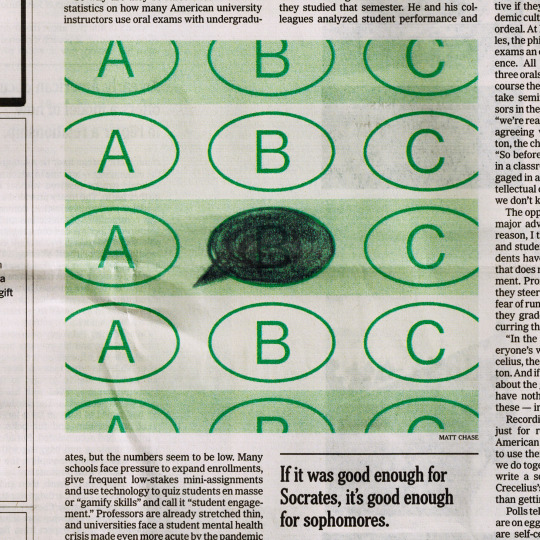
For The New York Times: Bring Back the Oral Exam
Art direction by Damien Saatdjian
65 notes
·
View notes
Text
11 June 2023
Beneath the veneer of Russian military “tactics”, you see the stupid leer of destruction for the sake of it. The Kremlin can’t create, so all that is left is to destroy. Not in some pseudo-glorious self-immolation, the people behind atrocities are petty cowards, but more like a loser smearing their faeces over life. In Russia’s wars the very senselessness seems to be the sense.
After the casual mass executions at Bucha; after the bombing of maternity wards in Mariupol; after the laying to waste of whole cities in Donbas; after the children’s torture chambers, the missiles aimed at freezing civilians to death in the dead of winter, we now have the apocalyptic sight of the waters of the vast Dnipro, a river that when you are on it can feel as wide as a sea, bursting through the destroyed dam at Kakhovka. The reservoir held as much water as the Great Salt Lake in Utah. Its destruction has already submerged settlements where more than 40,000 people live. It has already wiped out animal sanctuaries and nature reserves. It will decimate agriculture in the bread basket of Ukraine that feeds so much of the world, most notably in the Middle East and Africa. To Russian genocide add ecocide.
The dam has been controlled by Russia for more than a year. The Ukrainian government has been warning that Russia had plans to blast it since October.
Seismologists in Norway have confirmed that massive blasts, the type associated with explosives rather than an accidental breach, came from the reservoir the night of its destruction. Some – including the American pro-Putin media personality Tucker Carlson – argue Russia couldn’t be behind the devastation, given the damage has spread to Russian-controlled territories, potentially restricting water supply to Crimea. But if “Russia wouldn’t damage its own people” is your argument then it’s one that doesn’t hold, pardon the tactless pun, much water. One of the least accurate quotes about Russia is Winston Churchill’s line about it being “a riddle wrapped in a mystery inside an enigma, but perhaps there is a key. That key is Russian national interest.” This makes it sound as if Russia is driven by some theory of rational choice – when century after century the opposite appears to be the case.
Few have captured the Russian cycle of self-destruction and the destruction of others as well as the Ukrainian literary critic Tetyana Ogarkova. In her rewording of Fyodor Dostoevsky’s Russian classic novel Crime and Punishment, a novel about a murderer who kills simply because he can, Ogarkova calls Russia a culture where you have “crime without punishment, and punishment without crime”. The powerful murder with impunity; the victims are punished for no reason.
When not bringing humanitarian aid to the front lines, Ogarkova presents a podcast together with her husband, the philosopher Volodymyr Yermolenko. It’s remarkable for showing two people thinking calmly while under daily bombardment. It reminds me of German-Jewish philosophers such as Walter Benjamin, who kept writing lucidly even as they fled the Nazis. As they try to make sense of the evil bearing down on their country, Ogarkova and Yermolenko note the difference between Hitler and Stalin: while Nazis had some rules about who they punished (non-Aryans; communists) in Stalin’s terror anyone could be a victim at any moment. Random violence runs through Russian history.Reacting to how Vladimir Putin’s Russia is constantly changing its reasons for invading Ukraine – from “denazification” to “reclaiming historic lands” to “Nato expansion” – Ogarkova and Yermolenko decide that the very brutal nature of the invasion is its essence: the war crimes are the point. Russia claims to be a powerful “pole” in the world to balance the west – but has failed to create a successful political model others would want to join. So it has nothing left to offer except to drag everyone down to its own depths.“How dare you live like this,” went a resentful piece of graffiti by Russian soldiers in Bucha. “What’s the point of the world when there is no place for Russia in it,” complains Putin. After the dam at Kakhovka was destroyed, a General Dobruzhinsky crowed on a popular Russian talkshow: “We should blow up the Kyiv water reservoir too.” “Why?” asked the host. “Just to show them.” But, as Ogarkova and Yermolenko explore, Russians also send their soldiers to die senselessly in the meat grinder of the Donbas, their bodies left uncollected on the battlefield, their relatives not informed of their death so as to avoid paying them. On TV, presenters praise how “no one knows how to die like us”. Meanwhile, villagers on the Russian-occupied side of the river are being abandoned by the authorities. Being “liberated” by Russia means joining its empire of humiliation.
Where does this drive to annihilation come from? In 1912 the Russian-Jewish psychoanalyst Sabina Spielrein – who was murdered by the Nazis, while her three brothers were killed in Stalin’s terror -first put forward the idea that people were drawn to death as much as to life. She drew on themes from Russian literature and folklore for her theory of a death drive, but the founder of psychoanalysis, Sigmund Freud, first found her ideas too morbid. After the First World War, he came to agree with her. The desire for death was the desire to let go of responsibility, the burden of individuality, choice, freedom – and sink back into inorganic matter. To just give up. In a culture such as Russia’s, where avoiding facing up to the dark past with all its complex webs of guilt and responsibility is commonplace, such oblivion can be especially seductive.
But Russia is also sending out a similar message to Ukrainians and their allies with these acts of ultra-violent biblical destruction: give in to our immensity, surrender your struggle. And for all Russia’s military defeats and actual socio-economic fragility, this propaganda of the deed can still work.
The reaction in the west to the explosion of the dam has been weirdly muted. Ukrainians are mounting remarkable rescue operations, while Russia continues to shell semi-submerged cities, but they are doing it more or less alone. Ukraine’s president, Volodymyr Zelenskiy, has been mystified by the “zero support” from international organisations such as the UN and Red Cross.
Perhaps the relative lack of support comes partly because people feel helpless in the face of something so immense, these Cecil B DeMille-like scenes of giant rivers exploding. It’s the same helplessness some feel when faced with the climate crisis. It’s apposite that the strongest response to Russia’s ecocide came not from governments but the climate activist Greta Thunberg, who clearly laid the blame of what happened on Russia and demanded it be held accountable. But there’s been barely a peep out of western governments or the UN.
Pushing the strange lure of death, oblivion and just giving up is the Russian gambit. How much life do we have left in us?
Peter Pomerantsev is the author of Nothing Is True and Everything Is Possible: Adventures in Modern Russia
20 notes
·
View notes
Text
"The reasons many women cite for not wanting kids are, to be sure, frequently circumstantial: a rapidly downward-spiraling climate, lack of a societal safety net for motherhood, the erosion of reproductive rights. But the majority of Generation Z and millennial respondents who are choosing not to have kids, according to a recent Pew Research Center Survey, report that they “just don’t want to.”
#childlessness#motherhood#womanhood#cnn#op-ed#children#patricia clarkson#reproductive rights#women's rights#sexism#patriarchy
13 notes
·
View notes
Text
The Philippines Cries in the State of Politics
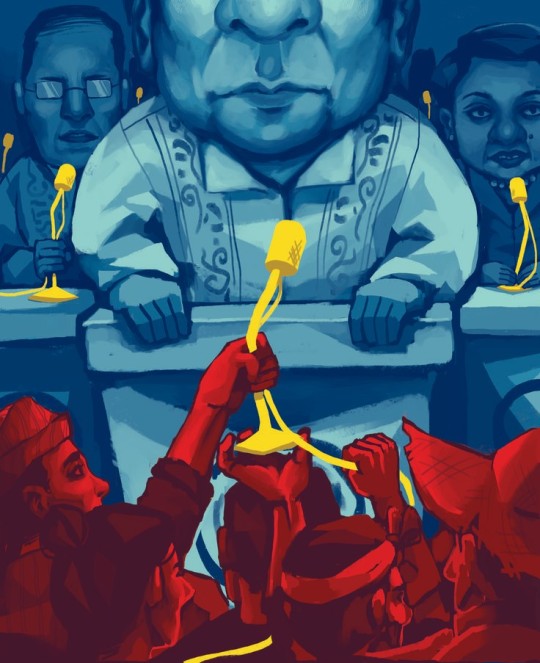
As disputes in the country continue to rise with the passing time, people need to step up to the challenge to resolve the problems that society brings. This is done through governmental elections, where the citizens of the Philippines would vote for candidates who run for positions in the government. Whether these candidates are worthy of the position, the fate of the Philippines lies in the decision of the nation.
The people are given free will to vote those they deem fit to acquire a position in the government. Without elections, there is no free will, only submission to authority that has been predetermined by the privileged and those with high social status.
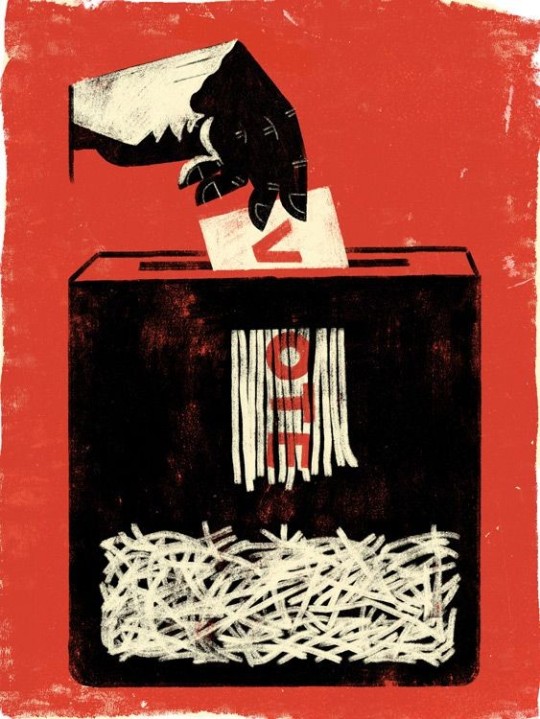
It was in the month of May in 2022 and on a rather cool afternoon. It was common knowledge that Duterte had to step down from his seat as president to allow someone else to take the responsibility.
The votes were tallied between BongBong Marcos and Leni Robredo, the tension was high until the results were released. The news came from my grandmother who casually spoke of how BongBong Marcos won the position as president of the Philippines. In all honesty, I felt nothing, I knew nothing about the candidates themselves nor did I think of how this would affect me since I was just 16 years old.
The internet was disappointed, if not hated the results, people on Tiktok were blaspheming Marcos and spoke of how it should have been Leni. Still, I underestimated the importance of elections until my mother spoke of how this affected the relationships of some families.
Parents were disowning their children, children were disowning their families, all because they had opposing views on who to vote for. This got me thinking, why are families willing to destroy their relationship because of the elections? Suddenly, it became a lot more significant to ponder about, especially when my time to vote would soon come.
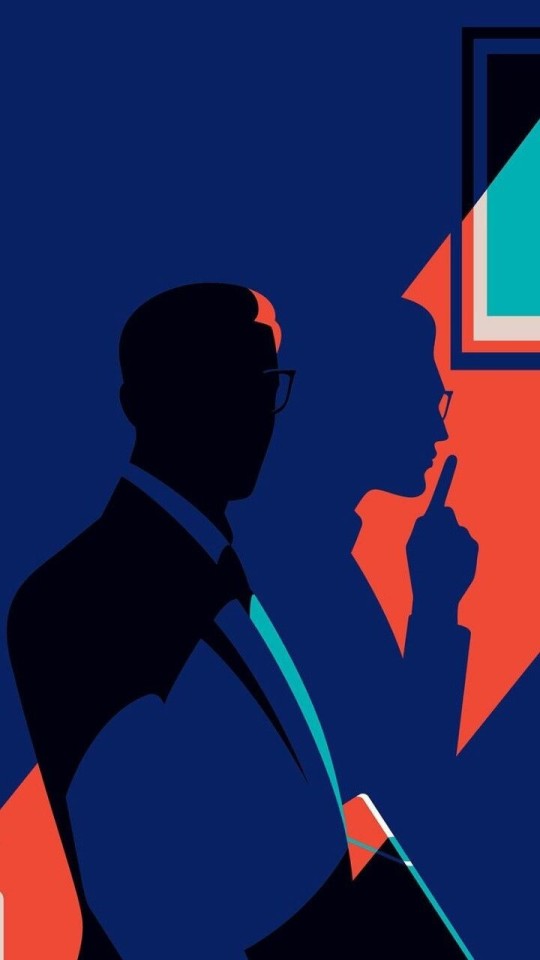
The candidates for Philippine elections were represented through status and wealth. But that alone does not get one to succeed in the elections, one must win the hearts of the people to win the votes.
As I grew older, I realized that candidates in the privilege spectrum would make use of their reputation and do what they could to acquire the position they were aiming for in the government. Whether they were a star such as an actor, or from a long family line that withheld a rank in the government, unless the candidate was popular and had the money to buy people, it did not matter if the candidate was truly knowledgeable or fit for the position. If they are not popular, they do not have the chance to win in the elections.
I recall the 2022 Philippine elections when Robinhood Padilla won as Senator. He was known as a TV star and actor before he became a Senator. Another example I could think of was the vice president, Sarah Duterte, who shared the last name of the previous Philippine president who was Rodrigo Duterte.
These alone exemplified the Philippine’s voting pattern, not by wisdom, but through personal feelings. Through these observations, it saddened me that people chose to ignore those who had great potential to lead the country and focused on those of popularity. Just because they contain the fun or “bibo” vibes does not mean they are qualified.
As of now at 18 years old in 2024, I tend to wonder; just how reliable is the system of the elections? If the government allows movie actors or models to apply for certain positions, are these the kind of people that we would want to represent and lead our country?
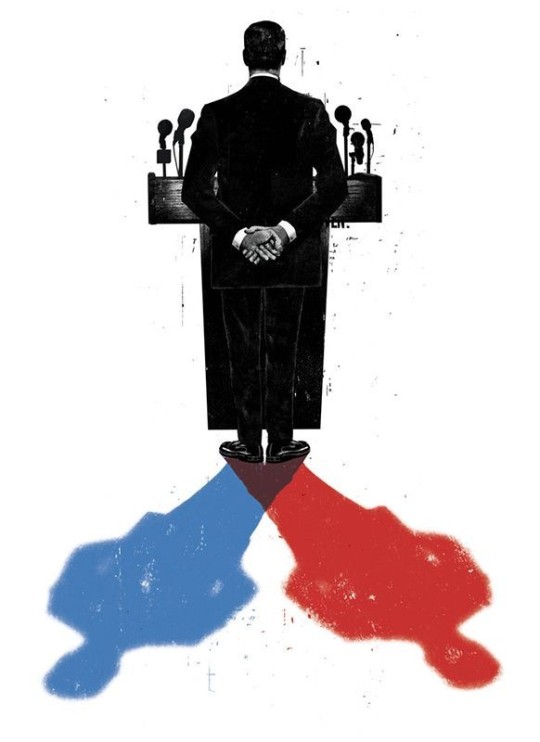
The Philippine election is a place where everyone stands on equal grounds, a place where the country is properly represented by those who understand the country’s needs. By this, we should not view a candidate by simply their appearance, but predetermine whether they can handle the responsibilities given with the position and through their character.
As someone who is ready to choose the next leaders when the elections come, I am more than willing to not vote blindly based on popularity, but on the sets of skills that the candidates hold. Yet I shall never turn blind to one’s reputation, for whatever is built up by the candidates works as a surface that leads to their character and personality.
The Philippines is still in the middle of change, yet what never changes are the officials who are blinded with the power they hold, officials who are corrupt. Nowadays, people do not actually know how to properly see through the veils that candidates put up to please the public, later on this results in deep regret once that veil falls off.
The need for electoral reform in the Philippines is a call for improvement. Ignorance is not bliss when it comes to having the right to vote. The candidates in the elections are not to be viewed for their outward appearance, but one must be an educated voter in terms of capabilities.
Duterte as president may have achieved many great things for the country, even helped progress the nation, but not without consequence. The War On Drugs campaign, despite its good cause, resulted in blood shed and corruption. Many lost loved ones and cried for them, just as how people cry for leaders who will lead this nation and lift it up.
Don’t vote without cause, nor because of biases. Don’t vote because of popularity, nor because of sweet promises. Have the research done for the candidate’s reputation reveals who they are even before they stepped foot into the elections. If the country chooses the wrong candidate, it will reflect on the country’s complexions.
#cryforgoodleaders#bewareoftheinfluenceofpopularpolitics#philippinegovernance#blog#politics#op-ed#memoir#journal#democracy
3 notes
·
View notes
Text
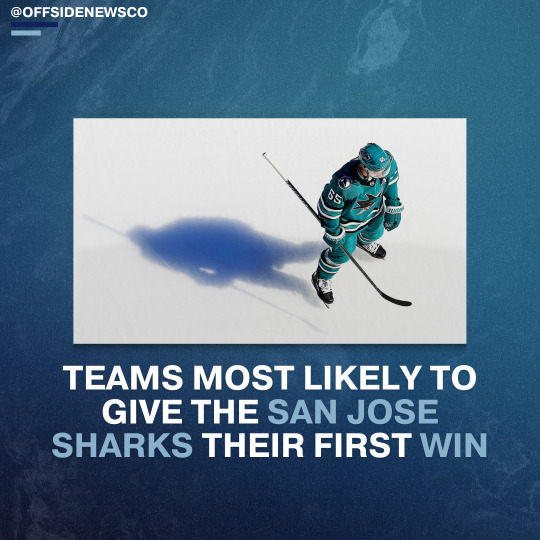
Our top picks for which team will be the first to lose to the San Jose Sharks not based on skill or stats, but just vibes.
Read more here: https://tinyurl.com/297ju59a
2 notes
·
View notes
Text
Red Scare - My Top 5 50s Horror Movies
Red Scare - My Top 5 50s Horror Movies
#Film #Horror #Cinema
The 1950s marked a significant era in the history of horror films, bringing forth a unique blend of fear, suspense, and social anxieties. This period saw the rise of science fiction-infused horror, capitalizing on the fears and uncertainties of the time. The nuclear age, Cold War tensions, and the fear of communism created a fertile ground for filmmakers to explore themes of mutation, invasion,…
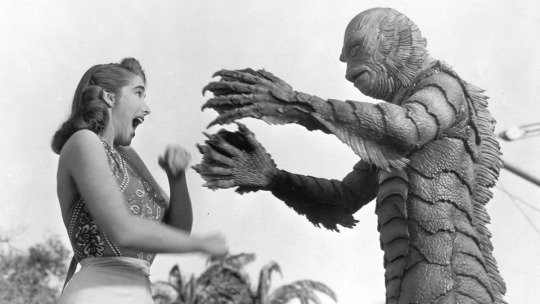
View On WordPress
#1950s Cinema#Alfred Hitchcock#Christian Nyby#Don Siegel#Horror#Irvin Yeaworth#Op-Ed#Op-Eds#William Castle
3 notes
·
View notes
Text
Way Up There
I think it’s funny that we put politicians and celebrities on pedestals. We place them way up there as godly figures, whose actions we seek to emulate. Invariably, however, when they do something that disappoints, reveal that they are human, and no better than anyone else, we feel betrayed, like we are owed an explanation, a better, more moral version of that person.
The reason why I think this…
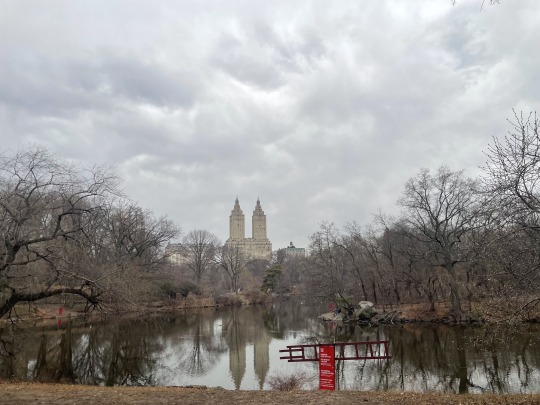
View On WordPress
13 notes
·
View notes
Quote
The rally wrapped up about 10 minutes later than planned. As some protesters went to the nearby Apple store to get warm, I heard Olga quietly repeating one of the chants.
“Russia will be free, Russia will be free, Russia will be free,” she said again and again, like an affirmation, like a mantra. Then she looked up and smiled. “This will be ringing in my head all day.”
Until Russia is free, Wednesday Journal, 01.02.2023
#free russia#protests#alexei navalny#navalny#op-ed#Oak Park#Russia#Митинг#комментарии#свобода России#россия будет свободной
5 notes
·
View notes
Text
More to come
#elections#politica#election fraud#election integrity#kari lake#katie hobbs#arizona#news#op-ed#journalism#reporting#rsbn#article#reading
6 notes
·
View notes
Link
Yesterday, a court in Fairfax, Virginia, ruled in favour of Johnny Depp on three counts of defamation. Amber Heard won for one count against Depp’s lawyer, Adam Waldman. Depp will receive $15 million gross, which has been revised down to $10.4 million in line with Virginia’s state limits for punitive damages. Amber Heard will receive $2 million in compensation, but no punitive damages.
I was surprised by this verdict-- and very concerned. The judgement against Heard seems disproportionate, and I am puzzled as to why the jury is confident that her claims are false. If they had doubts, I could understand, but the jury also ruled that Adam Waldman had defamed Amber Heard when he called her sexual abuse allegations ‘a hoax’. If that claim is defamatory, then how are Amber Heard’s allusions in an op-ed that never names Depp nor specifies the claims so defamatory that she has to pay over $10 million to Johnny Depp?
I am troubled by the precedent for freedom of speech here. Nobody doubts that defamation is unacceptable, but we must also recognise that freedom of speech is threatened if people cannot make a public allegation against an individual in power for fear of being ruined financially by a lawsuit. Amber Heard’s attorney, Elaine Bredehoft, confirmed in the above interview that Amber Heard absolutely cannot afford to pay Depp $10 million in damages and will therefore appeal.
Even more disturbingly, Elaine Bredehoft claims that a great deal of evidence was suppressed prior to the Virginia trial, including medical reports from Amber Heard showing that she made allegations of physical and sexual abuse against Depp dating back to 2012. Text messages were also suppressed, showing that Depp’s assistants told him that he had kicked Heard, and he cried. I have personally seen screenshots of those messages. So Bredehoft argues that there are also evidence-based reasons to appeal this verdict, which she says sends a terrible message.
I always insist that allegations be supported by evidence, and Amber Heard did provide extensive evidence to support her claims. She provided more evidence than I knew about, given that I did not follow the 2020 case or have access to some key facts about her TRO and divorce proceedings in 2016.
I am not convinced that Johnny Depp responded sufficiently to that evidence in Virginia, especially in response to his exceedingly vulgar text messages.
Will this ruling set a precedent where someone can make a public allegation and provide evidence, but, owing to the career damage that the accused suffers, be found liable for defamation and have to pay millions in damages?
If so, this injustice could affect anybody, including Johnny Depp’s own fans. Journalists who report stories in the national interest could find themselves in court and potential truths could be suppressed.
I know that the investigative journalist and author Catherine Belton was being sued by Russian oligarch Roman Abramovich, Igor Sechin, Rosneft, and others after publishing a book about how Vladimir Putin’s friends helped him get into power (Putin’s People). Other journalists felt extremely concerned that the legal challenge against Belton would limit their ability to report damaging facts about powerful individuals.
Is that the precedent set here? If so, then America’s Constitution has been undermined, and all Americans-- whether they believe Amber Heard or not-- are less free.
#amber heard#johnny depp#elaine bredehoft#benjamin chew#camille vasquez#benjamin rottenborn#virginia#fairfax county#defamation#defamation trial#johnny depp trial#law#legal#attorney#commentary#domestic abuse#op-ed#damages#catherine belton#roman abramovich#journalism
23 notes
·
View notes
Text
Who doesn't love a good conspiracy theory
3 notes
·
View notes
Text
OP-ED: Carrying On, What it’s like starting to thesis after the “Hostile Takeover”
I watch friends and faculty dissipate, creating a ghost town out of the college that once seemed like the promised land to my depressed teenage self. Many in my cohort, having arrived Fall 2021, have either already abandoned ship, or plan to do so when the year closes out. But for myself and many others, transferring really doesn’t feel like an option—because for us, our presumed last year, our…
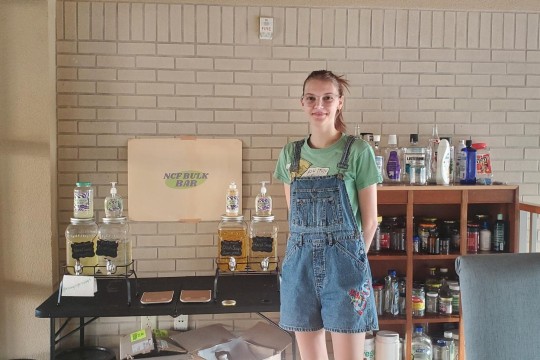
View On WordPress
2 notes
·
View notes
Link
“This replacement could only be accomplished through a massive theft. The most popular generative art AI companies, Stability AI, Lensa AI, Midjourney and DALL-E, all trained their AI’s on massive data sets such as LAION-5B, which is run by the German nonprofit LAION.
These data sets were not ethically obtained. LAION sucked up 5.8 billion images from around the internet, from art sites such as DeviantArt, and even from private medical records. I found my art and photos of my face on their databases. They took it all without the creator’s knowledge, compensation or consent.
Once LAION had scraped up all this work, it handed it over to for-profit companies — such as Stability AI, the creator of the Stable Diffusion model — which then trained their AIs on artists’ pirated work. Type in a text prompt, like “Spongebob Squarepants drawn by Shepard Fairey,” and the AI mashes together art painstakingly created over lifetimes, then spits out an image, sometimes even mimicking an artist’s signature.
...
While they destroy illustrators’ careers, AI companies are making fortunes. Stability AI, founded by hedge fund manager Emad Mostaque, is valued at $1 billion, and raised an additional $101 million of venture capital in October. Lensa generated $8 million in December alone. Generative AI is another upward transfer of wealth, from working artists to Silicon Valley billionaires.”
2 notes
·
View notes